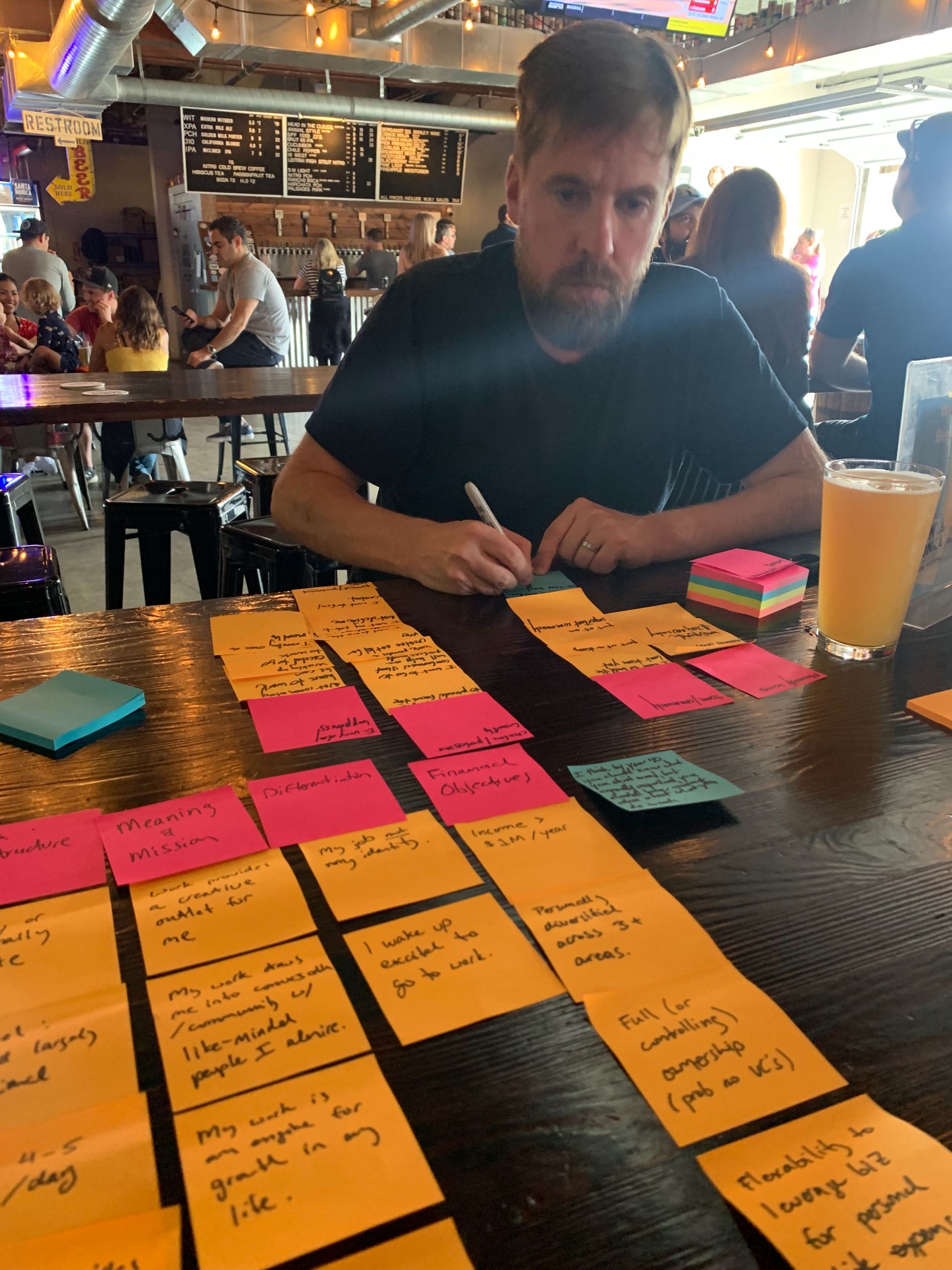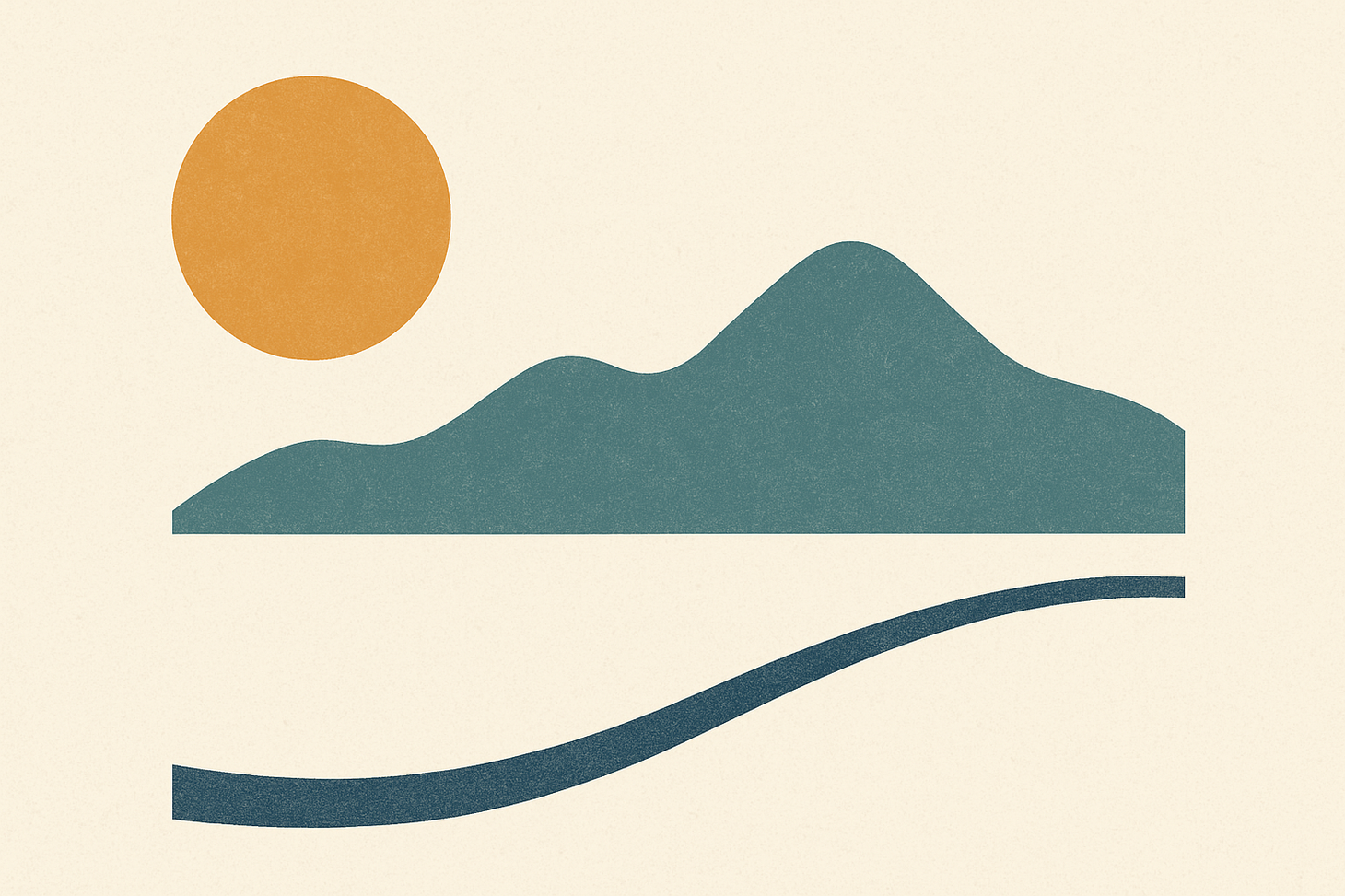Escaping the misery of self-comparison
Struck with self-loathing every time you hear of someone else's success? You are not alone.

"As of this week, my personal net worth has hit nine figures," my client said.
It took me a moment to sort what that meant.
One hundred million dollars!
Wow, I thought. That is a big number.
In coaching, part of what we train for is to notice our thoughts, reactions, and emotions in sessions. We are taught to identify them so we can set them aside and remain present for the client.
At this moment, what I noticed was I felt simply happy for my client. It was not happiness about his riches, although that is super fun. It was happiness about his happiness.
When I was digesting the session later that day, I realized this experience was novel for me. For years, whenever I heard about the success of another founder, I felt wracked with self-criticism. The success of someone else would send me into a spiral for hours or even days.
Noticing in that session that I felt none of that was a big step for me.
As a coach, I spend time around founders who are in the midst of tremendous success and founders who are in the midst of soul-crushing struggle. Equanimity about the success of others does not come so easily every day. There are still sessions where the achievements of a client are triggering to me. In those moments, the questions that pop up are:
- Do I need to do something bigger?
- Am I achieving enough [money, impact, fame]?
- Should I stop coaching and start another venture-backed company?
The thoughts still come from time to time. But they come, and then they pass. And I am so grateful. By allowing them to pass, I can simply be with the human on the other end of the table or screen.
Like an addict is always prone to addiction, and always 'in recovery,' I may be prone to the pain of comparison. But it is so much better than it used to be.
I have learned a great deal about how to disarm the questions, how to sit with them, and how to ensure the triggers do not ruin the day or prevent connection.
Below are some of my reflections on why this work has mattered and a few helpful resources.
How comparison holds us back
Comparison is the thief of joy. – Theodore Roosevelt
There were countless days as a founder where I would find myself plotting along satisfied with my work, my day, my life, and then one TechCrunch article about a monster round from some company would grind my day to a halt.
My mind would take off. What are they doing that I am not? (Note the "I" in these moments, never the "we".)
Why am I so bad at this?
Why am I so slow?
Maybe we need a better CEO who can make this thing work.
Fuck this, I don't want to work anymore today.
No matter how successful my startup was going at the time—and we had some wonderful years in there—I still found comparisons difficult.
Resiliency eroded
In addition to ruining some of my otherwise joyful days, I have found that going down the road of comparison has a way of eroding my resilience.
Most of us founder types would quickly identify resilience as a key attribute of founders and other startup folks. Startups are full of crazy ups and downs and if you are not resilient, you won't last months let alone years.
So what helps keep us resilient?
If resilience is such a critical and obvious ingredient, it might be worth taking care to protect and foster it.
In my experience, resiliency is best protected by connection and gratitude.
Comparison eats away at both.
I have found that falling prey to comparison destroys my ability to connect with those around me. When lost in my head, I find it impossible to connect meaningfully with my co-founders and teammates. The self-critical voices raging in my mind made it impossible to really hear anything else being said.
Comparison also got in the way of connecting meaningfully with other founders. When I did forge close friendships with other founders, those friendships were life-saving. The dinners and phone conversations I had with close founder-friends on the toughest days of startup life were one of the most powerful contributors to me not throwing in the fucking towel.
But, I know I missed out on a lot of such friendships I might have enjoyed because of comparison. In countless founder dinners, I struggled with the voice raging in my head saying: 'You don't belong here! Everyone else here is more [talented, capable, impressive, etc.] than you are. Just go home."
Comparison can eat away at the opportunity for community right when we need it most.
Disconnection from the work that is yours to do
When I compare myself to someone else, I find myself disconnected immediately from my work.
I might read about an exit some company had and think, "I had an idea similar to that! I should have done it. I'm so stupid; I never work on the right things."
I am immediately taken out of the questions and the knowledge that matters most.
In my own life right now, those questions go something like:
- What is the work at hand that is uniquely mine to do?
- How do I want to spend these hours, days, and weeks of my life?
- How can I, Matt, be most helpful to this world right now?
When I get caught in comparison, I lose sight of what I know: there is work here that is uniquely mine to do. In my life right now, that work is coaching: the opportunity to come alongside leaders and founders in the hardest part of their journey.
In your life, there is undoubtedly work that is uniquely yours to do. If you have not found it yet, do not stop looking. If you have found it, protect that knowledge. Do not let the successes of others distract you.
Finding our way through
As I shared above, there is no perfect here. But there are a few tools and practices that I have found helpful and which may be of service to you the next time comparison triggers self-loathing for you.
As a starting point, I have found it helpful to sit with the following questions:
- What is my work to do?
- What is enough?
- What drives my happiness?
In the months between selling my last company and beginning to coach, a good friend was visiting from Oakland. He found himself between jobs too, and struggled to determine what might be next. Since we were both in a similar spot, we decided to take some time to explore the questions together.
To make it fun, we headed to the Santa Monica brewery. Because I am a nerd for this kind of thing, we brought along a stack of multi-colored sticky notes and permanent markers. Yes, we brought brainstorming materials to the brewery!
As we sipped our beer, we invited ourselves to imagine what our work might look like in the years ahead. We decided we would brainstorm without constraints, be as crazy as we like.
When we had exhausted all the things we could think to dream of, we each bucketed the cards that felt most important into major themes. For me, those themes were:
- Work structure
- Meaning & mission
- Differentiation
- Financial
Getting these goals down on paper helped me to have something to hold opportunities up against in the ensuing months as I explored what might be next for me. The freedom of brainstorming without limits, and in a safe space with a trusted ally, allowed ideas to bubble up that would have otherwise felt too crazy to mention. For example, could I have meaningful, high-impact work, earn a nice living for my family, and work fewer than 50 hours a week? The combination felt crazy.
As I began to try on different kinds of work, I found myself reflecting on that day frequently. And when I finally found my way to coaching, I noticed that the work very much fulfilled each of my major longings I had allowed myself to hold.
I can now look at coaching and very much know that 'yes, this is my work to do' (at least for now!).
Getting to clarity on what my family needs financially (I eventually refined that initial brainstorm a bit...) helped me to answer the question: how much is enough?
Allowing myself to explore the kinds of work that most bring me alive and help me to feel useful to the world helped to ground me in the work that is mine to do.
Putting all of this on paper, first on those sticky notes and later in my journal, gives me a place to return and re-anchor myself when the news of someone else's success pulls me into jealousy and self-criticism.

The great jealousy unlock
There is one other far simpler tool that I have found very useful when it comes to finding space from jealousy and comparison. This tool was shared with me by my good friend Yanda Erlich. It goes like this:
When you find yourself jealous of someone else's life, you must commit to being jealous of their full life. In other words, ask yourself, 'would I trade every part of my life for every part of the other person's life?'
The wisdom that Yanda's question susses out is that no positive achievement or experience happens in isolation. And no person experiences any part of his or her life as an isolated experience from the rest of his or her life.
The raw materials that made the success I see in another possible may include years of struggle. The life I believe myself to be jealous of may include other parts that are far worse than their counterparts in my own life.
Seen this way, jealousy is a refuting of the full experience of the life that is mine to live and the person that I am meant to be.
For me, that question has been immensely freeing and I find it a powerful antidote right at the moment when I am struggling most.
Wishing you well
Wherever you find yourself today as you read this post, I wish you well. May you find the work that is yours to do and the life that is yours to live.
Our route out of self-criticism is paved with self-acceptance and self-celebration. If these practices feel awkward and new, you are not alone.
Wishing you all of the acceptance, ease, and connection you dare to desire.
-Matt
Sanity Notes Newsletter
Join the newsletter to receive semi-weekly updates in your inbox.


